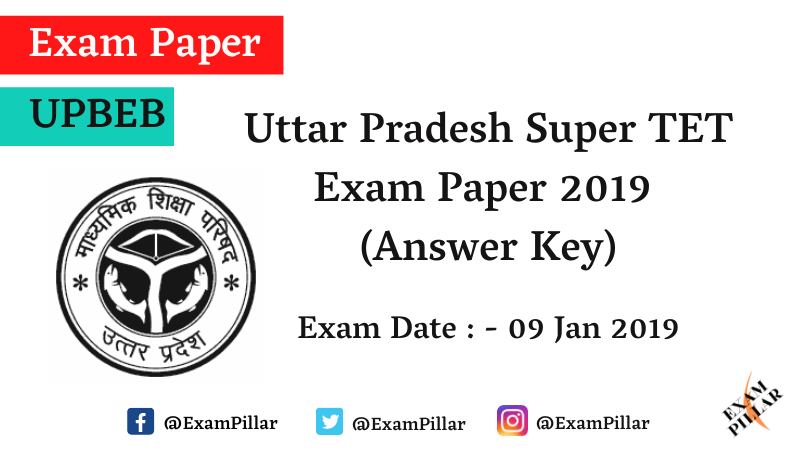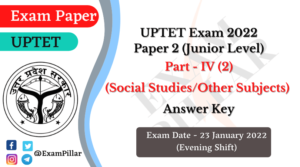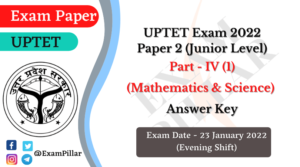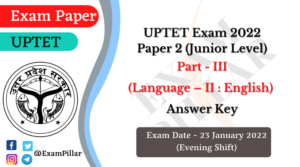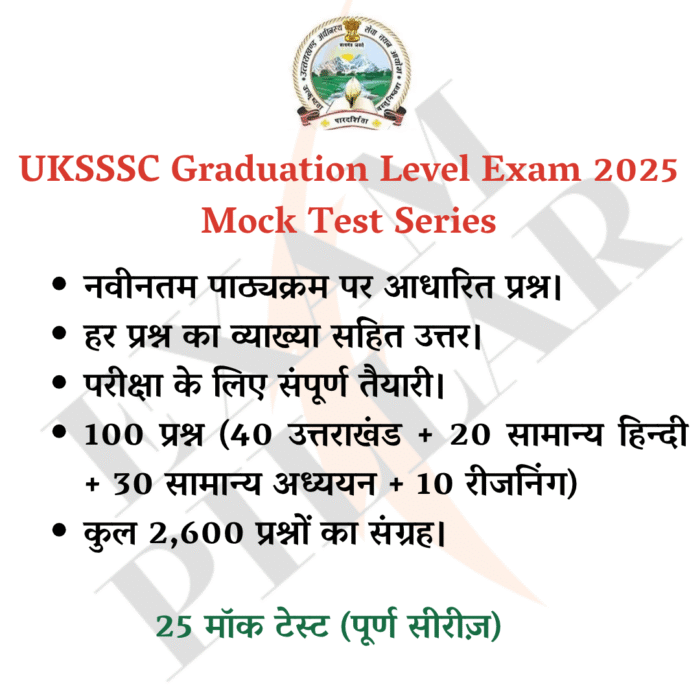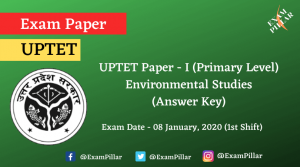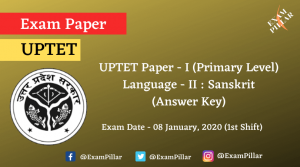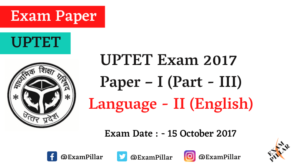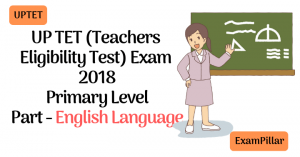21. शैले शैले न माणिक्यं मौक्तिकं न गजे गजे।
साधवो न हि सर्वत्र चन्दनं न वने वने॥
अस्मिन् श्लोके सर्वत्र के न भवन्ति?
(1) मौक्तिकम्
(2) साधवो
(3) माणिक्यम्
(4) चन्दनम्
Show Answer/Hide
22. ‘सूर्योदयः’ पद में प्रयुक्त समास है
(1) कर्मधारय
(2) बहुव्रीहि
(3) तत्पुरुष
(4) अव्ययीभाव
Show Answer/Hide
23. ‘नीलोत्पलम्’ में कौन-सा समास है?
(1) द्विगु
(2) द्वन्द्व
(3) बहुव्रीहि
(4) कर्मधारय
Show Answer/Hide
24. ‘दास्यति’ क्रियापद में लकार है
(1) लट्
(2) लोट
(3) लृट्
(4) विधिलिङ्
Show Answer/Hide
25. उदेति सविता ताम्रः एव अस्तमेति च।
सम्पत्तौ विपत्तौ च महतामेकरूपता।
‘सविता’ कीदृशः उदेति?
(1) ताम्रः
(2) पीत:
(3) नील:
(4) हरित:
Show Answer/Hide
26. ‘पितृस्वसा’ का अर्थ है
(1) बुआ
(2) चाची
(3) ताई
(4) मौसी
Show Answer/Hide
27. ‘गम्’ धातु लट् लकार मध्यमपुरुष बहुवचन का रूप है
(1) गमिष्यतः
(2) गमिष्यथः
(3) गमिष्यथ
(4) गमिष्यावः
Show Answer/Hide
28. माहेश्वर सूत्रों की संख्या है
(1) 14
(2) 13
(3) 15
(4) 10
Show Answer/Hide
29. ‘गाः’ पद में विभक्ति वचन है
(1) प्रथमा बहुवचन
(2) द्वितीया बहुवचन
(3) पंचमी एकवचन
(4) सप्तमी एकवचन
Show Answer/Hide
30. ‘हसन्ती’ पद में प्रत्यय है
(1) क्तिन्
(2) क्त
(3) शतृ
(4) ल्युट्
Show Answer/Hide
Direction (Q. Nos. 31 and 32) : Read the passage given below and answer the questions that follow.
Poverty is cruel, but it is curable. The only known cure is economic pragmatism instead of woolly ideology. In the field of economics, the tree of ideology has never bore any fruit. We have countless chances for development. Opportunities multiply when they are seized; they die when neglected. We have barely tapped our immeasurable potential for growth. Immense manpower, superb skills and enterprise are to India what oil is to the Middle East. The only difference is that the oil will be depleted one day, but our human resources will never be.
31. Which of the following is most opposite in meaning of the word ‘deplete’ as used in the passage?
(1) Regenerate
(2) Empty
(3) Quench
(4) Inflate
Show Answer/Hide
32. According to the author, ideology in the context of economics
(1) is the most important consideration
(2) has barely yielded any result
(3) is not a futile consideration
(4) has proved to be a basic requirement
Show Answer/Hide
33. Fill in the blank with the correct pronoun in the following sentence :
One should love ______ country.
(1) his
(2) her
(3) one’s
(4) my
Show Answer/Hide
34. The number of vowel and consonant sounds in English is indicated respectively by
(1) 22, 22
(2) 5, 39
(3) 10, 34
(4) 20, 24
Show Answer/Hide
35. Identify the direct narration of the given sentence :
Atul informed his friend that he could make use of his bike while he was away.
(1) Atul said to his friend, “You will make use of my bike while I was away.”
(2) Atul said to his friend, “Use my bike while I go away.”
(3) Atul said to his friend, “You can make use of my bike while I am away.”
(4) Atul asked his friend, “Will you make use of my bike while I am away?”
Show Answer/Hide
36. Identify the parts of speech of the underlined word in the following sentence :
He is intelligent enough to solve this sum.
(1) Adverb
(2) Adjective
(3) Preposition
(4) Noun
Show Answer/Hide
37. Find out the subject in the following sentence :
On the top of the hill lives a hermit.
(1) the hill
(2) a hermit
(3) On the top
(4) On the top of the hill
Show Answer/Hide
38. In the following sentence, change the verb to the past tense :
She hides her face for shame.
(1) hidden
(2) hide
(3) hid
(4) hidded
Show Answer/Hide
39. Identify the type of the sentence given below :
How well she sings!
(1) Declarative
(2) Imperative
(3) Interrogative
(4) Exclamatory
Show Answer/Hide
40. Which of the following sentences is correct?
(1) He is an European citizen.
(2) An one rupee note is rare to find.
(3) I donated an unit of blood.
(4) An FIR was lodged against him.
Show Answer/Hide

